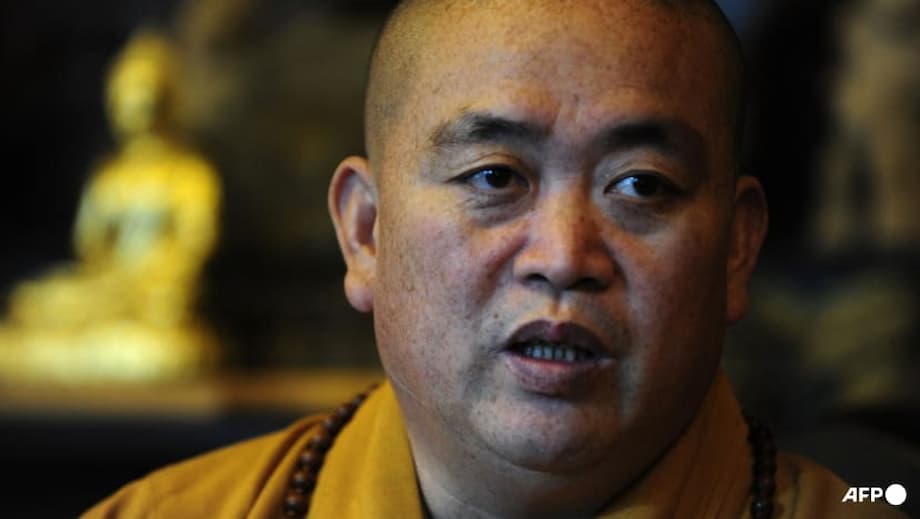The Shaolin Temple Scandal: A Crisis of Faith and Leadership
The Shaolin Temple, a 1,500-year-old monastery perched in China’s Henan province, has long stood as a symbol of Zen Buddhism and the legendary home of Shaolin kung fu. But in July 2025, this revered institution was shaken to its core by a scandal involving its high-profile abbot, Shi Yongxin. Known as the “CEO monk” for his ambitious commercial ventures, Shi’s dramatic fall from grace has ignited a national debate about the intersection of religion, law, and modernity in China.
- The Shaolin Temple Scandal: A Crisis of Faith and Leadership
- Who Is Shi Yongxin? The Rise of the “CEO Monk”
- Allegations and the Fall from Grace
- Official Response: Law, Patriotism, and the Sinicization of Religion
- Commercialization and Controversy: The Shaolin Brand
- Inside the Investigation: What Went Wrong?
- Public Reaction: Social Media, Skepticism, and the Search for Authenticity
- Leadership Transition: A New Abbot and the Path to Redemption
- Broader Implications: Religion, Law, and Society in Modern China
- In Summary
Shi Yongxin’s removal, following allegations of embezzlement, sexual misconduct, and violations of Buddhist precepts, has not only tarnished the temple’s reputation but also prompted a sweeping call for reform within China’s Buddhist community. The case has become a lightning rod for discussions about the commercialization of religion, the responsibilities of spiritual leaders, and the Communist Party’s efforts to align religious practice with state ideology.
Who Is Shi Yongxin? The Rise of the “CEO Monk”
Born Liu Yingcheng in 1965, Shi Yongxin joined the Shaolin Temple as a teenager and quickly rose through the ranks. By 1999, he was appointed abbot, inheriting a temple that had survived centuries of war, political upheaval, and neglect. Under Shi’s stewardship, Shaolin underwent a dramatic transformation. He spearheaded the temple’s global expansion, establishing martial arts schools abroad, licensing the Shaolin brand, and even proposing a $300 million luxury golf resort in Australia.
Shi’s business acumen was unmatched among Chinese religious leaders. He founded companies in sectors ranging from cultural promotion and real estate to health management and entertainment. The Shaolin Temple registered over 700 trademarks, and its annual income soared to an estimated 500 million RMB (about $70 million), with revenue streams from ticket sales, incense offerings, and brand licensing. Shi’s efforts brought international fame to Shaolin, attracting celebrities and dignitaries from around the world.
But this commercial success came at a cost. Critics accused Shi of turning a sacred institution into a profit-driven enterprise, blurring the lines between spiritual leadership and personal ambition. The temple’s halls, once echoing with the chants of monks, became crowded with tourists, gift shops, and kung fu performances. For many, Shi embodied the uneasy marriage of Buddhism and capitalism in modern China.
Allegations and the Fall from Grace
Rumors and allegations had swirled around Shi Yongxin for years. In 2015, a former disciple accused him of embezzlement and maintaining improper relationships with women, including fathering children—serious violations of Buddhist monastic vows, which require celibacy and detachment from worldly desires. At the time, an official investigation found insufficient evidence, and Shi remained in his post, even rising to vice-president of the Buddhist Association of China.
But in July 2025, the situation changed dramatically. The Shaolin Temple’s management office announced that Shi was under joint investigation by multiple government departments for suspected criminal offenses, including embezzlement, misappropriation of temple assets, and sexual misconduct. The Buddhist Association of China swiftly revoked his ordination certificate, effectively defrocking him and stripping him of his monastic status.
The Buddhist Association of China stated, “Shi Yongxin’s actions are of an extremely bad nature, seriously undermining the reputation of the Buddhist community and hurting the image of monks.”
Authorities also began deregistering companies linked to Shi’s commercial empire, signaling a comprehensive effort to erase his institutional footprint. The scandal dominated Chinese social media, with hashtags related to the case garnering hundreds of millions of views on Weibo, China’s largest microblogging platform.
Official Response: Law, Patriotism, and the Sinicization of Religion
The Chinese government’s response to the scandal was swift and unequivocal. The Buddhist Association of China, under the supervision of the Communist Party, issued multiple statements urging Buddhist clergy to “strengthen their legal awareness and strictly observe national laws.” The association emphasized that monks and nuns are first and foremost Chinese citizens, subject to the same laws and civic responsibilities as everyone else.
“Ordination doesn’t exempt Buddhist monks and nuns from constitutional obligations as Buddhist clergy are first and foremost Chinese citizens,” the association declared. “Their religious identity neither negates civic responsibilities nor places them above the law.”
The statements went further, invoking Buddhist scripture to remind the ordained not to betray the nation, slander the country’s leaders, evade taxes, or violate laws. The association warned that “committing crimes creates evil karma” and that compliance with the law is a fundamental requirement of Buddhist teachings.
This rhetoric aligns with President Xi Jinping’s broader policy of “Sinicizing” religion—ensuring that all religious doctrines and practices are compatible with socialist values and loyal to the Party and state. The Shaolin scandal, therefore, became a test case for the government’s efforts to tighten control over religious institutions and demand greater accountability from spiritual leaders.
Commercialization and Controversy: The Shaolin Brand
Shi Yongxin’s tenure as abbot was marked by an aggressive push to commercialize the Shaolin Temple. He established a network of companies, registered hundreds of trademarks, and turned the temple into a global brand synonymous with kung fu and Zen Buddhism. Under his leadership, Shaolin’s influence extended far beyond China, with cultural exchange centers in Berlin, London, Los Angeles, and other major cities.
Supporters argued that these ventures were necessary to preserve and promote Shaolin culture in a rapidly changing world. With limited government funding, the temple relied on commercial activities to sustain itself, restore ancient architecture, and support charitable causes. Local authorities often encouraged these efforts, recognizing the economic benefits for tourism and regional development.
But critics saw things differently. They accused Shi of prioritizing profit over spiritual integrity, turning monks into performers and the temple into a tourist trap. The proliferation of gift shops, luxury cars, and overseas investments fueled suspicions of corruption and personal enrichment. For many, the “CEO monk” epitomized the dangers of mixing religious authority with business interests.
The latest allegations of embezzlement and sexual misconduct have only intensified these concerns. As one commentator noted, “It is a disheartening and somber state of affairs when the abbot of Shaolin Monastery is in the midst of a cataclysmic fall from grace.”
Inside the Investigation: What Went Wrong?
The details of the investigation into Shi Yongxin remain closely guarded by Chinese authorities. However, official statements and media reports paint a picture of systemic failures in oversight and discipline within the Buddhist community. The Buddhist Association of China acknowledged that Shi’s case “exposed loopholes in the management of Buddhist organizations and venues” and called for stronger internal supervision mechanisms.
The association warned, “Some Buddhist leaders have been negligent in their practice, lax in self-discipline and have allowed their faith to waver, ultimately losing the ethical standards Buddhists should uphold.”
Shi’s alleged crimes—embezzlement, misappropriation of public funds, bribery, and violations of celibacy—are considered severe enough to warrant imprisonment. The case has disrupted the management of the Shaolin Temple and brought discredit to the national Buddhist community. It has also underscored the challenges of maintaining religious purity in an era of rapid commercialization and social change.
Public Reaction: Social Media, Skepticism, and the Search for Authenticity
The Shaolin scandal has captivated the Chinese public, sparking intense debate on social media and in traditional news outlets. Many netizens expressed shock and disappointment, while others saw the case as confirmation of long-standing suspicions about corruption and hypocrisy among religious leaders.
Some questioned why authorities acted now, years after the original allegations surfaced. Others drew parallels to similar scandals in other Buddhist countries, such as Thailand, suggesting that the temptations of sex and greed are universal challenges for monastic communities. The case has also reignited discussions about the proper role of religion in Chinese society and the dangers of excessive commercialization.
For many, the scandal is a cautionary tale about the risks of conflating spiritual leadership with business interests. As one Buddhist commentator observed, “When monastics cannot distinguish between generosity and business interests, struggling with moral choices, the credibility of the Dharma is damaged.”
Leadership Transition: A New Abbot and the Path to Redemption
In the wake of Shi Yongxin’s removal, the Shaolin Temple has appointed a new abbot, Shi Yinle. A respected figure known for his low profile and commitment to traditional Buddhist values, Shi Yinle previously served as abbot of the White Horse Temple, China’s oldest Buddhist monastery. His appointment is seen as an effort to restore credibility and stability to the Shaolin community.
Shi Yinle’s background contrasts sharply with that of his predecessor. Ordained at age 16, he trained at Qixia Temple and studied at the Chinese Buddhist Academy before joining the Henan Provincial Buddhist Association. As abbot of the White Horse Temple, he focused on preserving Buddhist traditions and maintaining a modest lifestyle. His leadership is expected to mark a return to spiritual fundamentals and a move away from the commercial excesses of the past.
In a symbolic gesture, the Shaolin Temple has reportedly stopped accepting donations from tourists, disabled QR codes for payments, and made incense free for visitors. These changes reflect a renewed emphasis on spiritual practice and public service, rather than profit.
Broader Implications: Religion, Law, and Society in Modern China
The Shaolin scandal has far-reaching implications for the future of Buddhism and religious life in China. It highlights the ongoing tension between religious purity and the pursuit of commercial profit—a dynamic that is unlikely to disappear anytime soon. The case also underscores the government’s determination to assert control over religious institutions and ensure their alignment with state interests.
For the Buddhist community, the scandal is a wake-up call to strengthen ethical standards, improve internal governance, and reaffirm the core values of compassion, discipline, and selflessness. The Buddhist Association of China has vowed to advance “comprehensive and strict governance of the Buddhist community” and to discipline those who violate precepts and rules.
At the same time, the case raises important questions about the sustainability of religious institutions in a rapidly modernizing society. With declining faith and demographic challenges, many temples and monasteries have turned to commercial ventures to survive. The challenge is to balance financial sustainability with spiritual integrity—a task that will require wisdom, transparency, and accountability.
In Summary
- Shi Yongxin, the “CEO monk” and former abbot of Shaolin Temple, was removed after allegations of embezzlement, sexual misconduct, and violations of Buddhist precepts.
- The scandal has sparked a national debate about the commercialization of religion, the responsibilities of spiritual leaders, and the role of law in religious life.
- The Buddhist Association of China has called for greater legal awareness and discipline among Buddhist clergy, emphasizing that monks are citizens first and subject to national laws.
- Shi’s commercial ventures brought fame and fortune to Shaolin but also fueled controversy and accusations of corruption.
- The appointment of a new abbot, Shi Yinle, signals a return to traditional values and efforts to restore the temple’s credibility.
- The case underscores broader challenges facing religious institutions in China, including the need to balance financial sustainability with spiritual integrity.












